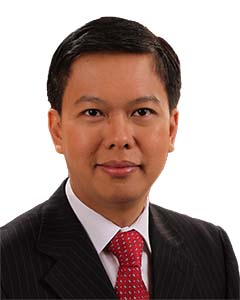Value-added tax (VAT) is only imposed if the goods or services are “destined” for local consumption. There is no VAT when they are for consumption abroad. The system in the Philippines follows the so-called destination principle, insulating exporters and export-oriented enterprises from paying VAT on their local purchases.

Partner and head of the tax department
ACCRALAW
Prior to the passage of the Corporate Recovery and Tax Incentives for Enterprises Act (CREATE), case law applied the so-called cross-border doctrine. This rule benefits enterprise located in special economic or freeport zones. The CREATE now limits the application of this rule. While these zones retain the legal fiction of being a foreign territory for taxation purposes, the locators will now shoulder VAT on their purchases.
The export sale treatment of their local purchases now only extends to goods or services directly and exclusively used in the registered project or activity – in other words, only the local components of their direct costs. Incidentally, these are also the costs that they may claim as deductions to compute their income, subject to a special tax. The local suppliers may now pass on VAT for their selling and administrative expenses.
Changes in the VAT system are essentially revenue-neutral. The law seeks to plug loopholes in the system and prevent avenues for tax evasion. It should be recalled that the Tax Reform for Acceleration and Inclusion (TRAIN) phased out the system of effective zero-rating, where a supplier may not ordinarily pass on VAT to exporters.
Effective zero-rating posed problems. Numerous suppliers had claimed their sales to be zero-rated, even when the same were subject to VAT. To avoid this, the TRAIN shifted the burden of claiming a refund from the suppliers to the exporters. A VAT on the supply of goods and services may be passed on to exporters, which may claim the same for refund up to the extent unutilised.
As a pre-condition for the change in the system, the Bureau of Internal Revenue (BIR) must adopt and implement an enhanced VAT refund scheme. The refund process has to be overhauled, given the claimants’ unsatisfactory experience from the previous system. In essence, the law shifted from a “deemed denied” to a modified “deemed approved” scheme.
The enhanced refund system
The envisioned refund system was meant to set in place several mechanisms to assure exporters that the VAT on their purchases would be immediately refunded. Specifically, the period for the BIR to decide on the refund application was shortened from 120 days to 90 days. Its reckoning date was changed “from the date of submission of complete documents in support of the application” to “the filing of the VAT refund application”, when there should be “submission of the official receipts or invoices and other documents in support of the application”. In effect, the claimant must submit all supporting documents at the time of filing the application.
A dedicated VAT refund centre within the BIR and the Bureau of Customs (BOC), with adequate staff who can focus and act on the claim, is expected to expedite the refund process. Personnel who deliberately fail to act on the claim within the 90-day period can be held criminally liable. To assure that a dedicated fund is available in the National Treasury to service the processed claims, the TRAIN automatically appropriates 5% of the total VAT collection from the immediately preceding year. It will be placed in a special account or treated as trust receipts for the purpose of funding claims for the VAT refund.
To facilitate congressional monitoring, the BIR and BOC are mandated to submit to congress a quarterly report of all pending claims for refund and any unused fund.
Current status
The shortened processing of refund applications will only materialise through the allowance of electronic receipts or invoices, and the proper implementation of the electronic sales reporting system. This requires an effective system that requires cash outlay from the government. This system should be in place by the end of 2022.
Until the system is put in place, exporters and export-oriented enterprises may have to contend with the traditional way of claiming a refund on the passed-on VAT on their local purchases. The BIR, as part of its service, hopefully, will expedite the processing of such refund applications to insulate enterprises from the burden of shouldering extra tax costs, and ensure that our country remains competitive to attract foreign investors.
Eric Recalde is a partner and head of the tax department at ACCRALAW

ACCRA Law Offices
22nd Floor, ACCRALAW Tower, 2nd Avenue corner
30th Street, Crescent Park West, Bonifacio Global City,
1635 Taguig, Metro Manila, Philippines
Contact details:
Tel: +63 2 8830 8000
Email: errecalde@accralaw.com
www.accralaw.com



























